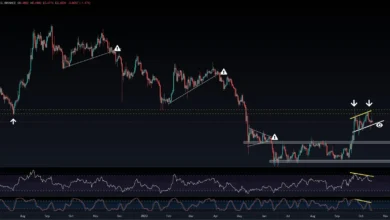Crypto Arbitrage Trading Opportunities Your Complete Guide to Profitable Strategies 2025

The cryptocurrency market never sleeps, and neither do the crypto arbitrage trading opportunities that emerge every second across global exchanges. With over $2 trillion in daily trading volume and thousands of cryptocurrency exchanges worldwide, price discrepancies create countless opportunities for savvy traders. Cryptocurrency arbitrage represents one of the most accessible yet sophisticated trading strategies, allowing traders to capitalize on price differences of the same digital asset across different platforms.
Unlike traditional market speculation, arbitrage trading offers a more predictable path to profits by exploiting temporary inefficiencies in the market. These crypto arbitrage trading opportunities arise due to varying liquidity levels, geographic restrictions, trading volumes, and market sentiment across different exchanges. Smart traders who understand how to identify, analyze, and execute these opportunities can generate consistent returns while minimizing exposure to market volatility.
What Are Crypto Arbitrage Trading Opportunities
Crypto arbitrage trading opportunities represent price discrepancies of identical cryptocurrencies across different exchanges or trading pairs. These opportunities occur when the same digital asset trades at different prices simultaneously on various platforms, creating potential for risk-free profits through strategic buying and selling.
The fundamental principle behind arbitrage is simple: buy low on one exchange and sell high on another. However, successful execution requires understanding market dynamics, transaction costs, transfer times, and regulatory considerations. Modern cryptocurrency markets, despite their 24/7 nature and global accessibility, still exhibit pricing inefficiencies that create these profitable windows.
Types of Cryptocurrency Arbitrage
Spatial Arbitrage involves trading the same cryptocurrency across different exchanges. For example, Bitcoin might trade at $43,500 on Exchange A while simultaneously trading at $43,800 on Exchange B, creating a $300 profit opportunity per Bitcoin.
Temporal Arbitrage exploits price differences of the same asset over time, often using futures contracts or options to lock in future prices while trading at current market rates.
Triangular Arbitrage involves trading three different cryptocurrencies in a circular pattern to exploit pricing inefficiencies in trading pairs. This sophisticated strategy often requires automated trading systems for optimal execution.
Statistical Arbitrage uses quantitative models to identify historically correlated assets that have temporarily diverged in price, betting on their eventual convergence.
How Crypto Arbitrage Trading Works
The arbitrage process begins with market scanning and price comparison across multiple exchanges. Successful arbitrage traders monitor dozens of exchanges simultaneously, looking for price spreads that exceed transaction costs and provide acceptable profit margins.
Step-by-Step Arbitrage Process
Market Analysis starts with identifying suitable cryptocurrency pairs and exchanges. Traders must consider factors like trading volume, liquidity, withdrawal limits, and historical price volatility.
Opportunity Detection involves real-time price monitoring using specialized software or APIs. Many professional arbitrage traders use automated systems that can scan hundreds of trading pairs across dozens of exchanges within milliseconds.
Risk Assessment includes calculating all associated costs: trading fees, withdrawal fees, network transaction fees, currency conversion costs, and potential slippage. The profit opportunity must exceed these costs by a comfortable margin.
Trade Execution requires simultaneous or near-simultaneous buying and selling across exchanges. Speed is crucial, as arbitrage opportunities often disappear within seconds or minutes.
Fund Management involves maintaining adequate balances on multiple exchanges to capitalize on opportunities quickly. This requires significant capital allocation and careful security management.
Best Platforms for Crypto Arbitrage Trading Opportunities

Selecting the right exchanges is crucial for successful arbitrage trading. The most profitable opportunities often involve major exchanges with high liquidity paired with smaller platforms that may have pricing inefficiencies.
Top-Tier Exchanges for Arbitrage
Binance offers the world’s highest trading volumes and supports hundreds of cryptocurrency pairs. Its advanced API and low trading fees make it ideal for high-frequency arbitrage strategies.
Coinbase Pro provides excellent liquidity for major cryptocurrencies and strong regulatory compliance, making it suitable for large-volume arbitrage trades.
Kraken offers competitive fees and strong security features, with particular strength in European markets where price differences often emerge.
KuCoin supports numerous altcoins and often exhibits pricing inefficiencies due to its diverse user base and regional variations.
Specialized Arbitrage Platforms
Several platforms specifically cater to arbitrage traders by providing price comparison tools, automated trading capabilities, and portfolio management features. These platforms aggregate data from multiple exchanges and highlight the most profitable opportunities in real-time.
Outbound Link Suggestion: For comprehensive exchange comparisons and current trading fees, refer to CoinMarketCap’s exchange rankings.
Automated Arbitrage Trading Strategies
Modern crypto arbitrage trading opportunities are increasingly captured through automated systems that can execute trades faster than human traders. These systems use sophisticated algorithms to scan markets, identify opportunities, and execute trades within milliseconds.
Algorithm Development
Successful automated arbitrage requires robust algorithms that can handle multiple variables simultaneously. These systems must account for real-time price feeds, exchange-specific fees, withdrawal limits, and execution delays.
API Integration forms the backbone of automated arbitrage systems. Traders must integrate with multiple exchange APIs to receive real-time price data and execute orders programmatically.
Risk Management Protocols are essential for automated systems. These include position sizing algorithms, maximum exposure limits, and emergency stop-loss mechanisms.
Popular Arbitrage Trading Bots
Several commercial and open-source trading bots specialize in cryptocurrency arbitrage. These tools range from simple price scanners to comprehensive trading platforms with advanced risk management features.
3Commas offers cloud-based arbitrage trading with pre-configured strategies and risk management tools.
HaasOnline provides advanced algorithmic trading capabilities with extensive customization options for experienced arbitrage traders.
Gekko represents a popular open-source option for developers who want to create custom arbitrage strategies.
Risk Management in Crypto Arbitrage Trading
While arbitrage is often considered “risk-free,” real-world crypto arbitrage trading opportunities involve several risk factors that traders must carefully manage.
Market Risks
Price Volatility can eliminate arbitrage opportunities before trades are completed. Cryptocurrency markets are notoriously volatile, and prices can move significantly during the time it takes to transfer funds between exchanges.
Liquidity Risk occurs when there isn’t sufficient trading volume to complete arbitrage trades at expected prices. This is particularly common with smaller altcoins or during periods of market stress.
Execution Risk involves the possibility that trades cannot be completed as planned due to technical issues, exchange downtime, or network congestion.
Operational Risks
Exchange Risk includes the possibility of exchange hacks, regulatory shutdowns, or withdrawal restrictions that could trap funds.
Technology Risk involves system failures, API outages, or software bugs that could disrupt trading operations.
Regulatory Risk encompasses changing regulations that could affect exchange operations or arbitrage trading legality in specific jurisdictions.
Risk Mitigation Strategies
Successful arbitrage traders implement comprehensive risk management frameworks that address both market and operational risks. This includes diversifying across multiple exchanges, maintaining emergency fund reserves, and using professional-grade security measures.
Internal Link Anchor Text Suggestion: “Learn more about cryptocurrency trading risk management strategies”
Common Mistakes in Crypto Arbitrage Trading
Many novice arbitrage traders make costly mistakes that can quickly erode profits and create unexpected losses. Understanding these pitfalls is essential for long-term success.
Calculation Errors
Underestimating Costs is the most common mistake in arbitrage trading. Traders often focus on the price spread while ignoring transaction fees, network costs, and currency conversion expenses.
Ignoring Time Factors leads to missed opportunities or unexpected losses. Cryptocurrency transfers between exchanges can take minutes or hours, during which prices may move against the arbitrage position.
Technical Mistakes
Insufficient Capital Allocation prevents traders from capitalizing on the best opportunities. Successful arbitrage requires maintaining adequate balances on multiple exchanges.
Poor Exchange Selection can limit profit potential. Some exchanges have high withdrawal fees or slow processing times that make arbitrage unprofitable.
Inadequate Monitoring leads to missed opportunities or failure to detect when arbitrage positions become unprofitable.
Maximizing Profits from Crypto Arbitrage Trading Opportunities

Experienced arbitrage traders employ several advanced strategies to maximize returns while minimizing risks and operational complexity.
Portfolio Optimization
Multi-Exchange Strategy involves maintaining strategic balances across numerous exchanges to capitalize on opportunities quickly. This requires careful analysis of historical arbitrage patterns and exchange-specific characteristics.
Currency Pair Selection focuses on trading pairs with consistent arbitrage opportunities and adequate liquidity. Major cryptocurrencies like Bitcoin and Ethereum typically offer the most reliable arbitrage opportunities.
Advanced Techniques
Cross-Border Arbitrage exploits price differences between exchanges in different countries or regions. This strategy often provides larger profit margins but involves additional regulatory and operational complexity.
Futures Arbitrage uses cryptocurrency futures contracts to lock in profits while managing spot market positions. This technique requires a sophisticated understanding of derivatives trading.
Statistical Arbitrage employs quantitative models to identify temporary price divergences between historically correlated cryptocurrencies.
Tools and Resources for Arbitrage Trading
Successful arbitrage trading requires access to sophisticated tools and reliable data sources. The cryptocurrency market’s complexity demands professional-grade resources for consistent profitability.
Essential Trading Tools
Price Comparison Platforms aggregate real-time prices from multiple exchanges, highlighting the most profitable arbitrage opportunities. These tools often include fee calculations and profit estimations.
API Management Systems help traders connect to multiple exchange APIs efficiently while managing rate limits and ensuring reliable data feeds.
Portfolio Management Software tracks positions across multiple exchanges and provides comprehensive performance analytics.
Data and Analytics
Market Data Providers offer professional-grade price feeds and historical data essential for backtesting arbitrage strategies.
Blockchain Analytics tools help traders understand network congestion and transaction costs that affect arbitrage timing.
Future of Crypto Arbitrage Trading Opportunities
The cryptocurrency market continues evolving, creating new types of arbitrage opportunities while potentially eliminating others through improved market efficiency.
Also Read: Cryptocurrency Trading Strategies: A Beginner’s Guide By Esteemcrypto
Emerging Trends
Decentralized Finance (DeFi) Arbitrage represents a growing opportunity as DeFi protocols often exhibit pricing inefficiencies compared to centralized exchanges.
Cross-Chain Arbitrage exploits price differences between different blockchain networks, though this requires managing bridge risks and extended settlement times.
Institutional Adoption is simultaneously creating larger arbitrage opportunities through increased trading volumes while potentially reducing inefficiencies through professional market-making activities.
Technology Developments
Artificial Intelligence and machine learning are becoming increasingly important for identifying subtle arbitrage opportunities and optimizing execution strategies.
Improved Infrastructure includes faster payment networks and more efficient exchange systems that could reduce arbitrage opportunities while making execution more reliable.
Conclusion
Crypto arbitrage trading opportunities continue to provide significant profit potential for traders who understand market dynamics and employ proper risk management strategies. Success in this field requires combining technical expertise, adequate capital, and sophisticated tools to identify and execute profitable trades consistently.
The cryptocurrency market’s continued growth and evolution ensure that arbitrage opportunities will persist, though they may become more sophisticated and require increasingly advanced strategies to capture effectively. Traders who invest in proper education, technology, and risk management frameworks can build sustainable arbitrage trading operations that generate consistent returns regardless of overall market direction.




